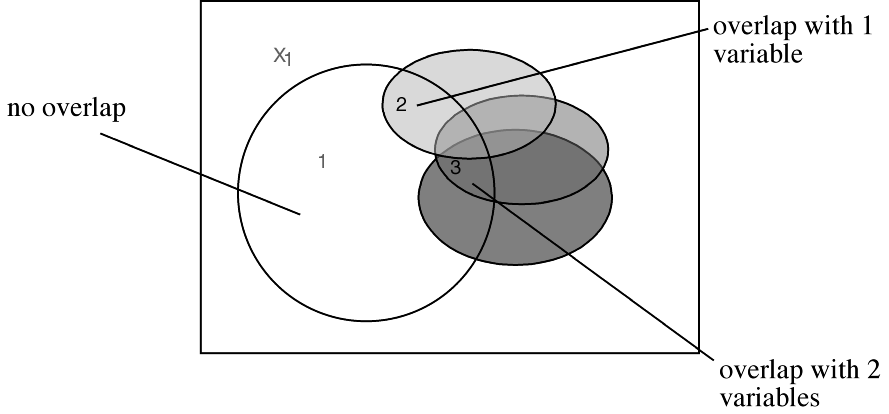
This course covers enough of the statistical material for the intelligent use of the technique. The approach is informal and applied rather than emphasising algebraic manipulation or proofs.
Participants can use their preferred statistical software (SPSS, SAS, Stata or R, etc) for the data analysis exercises. Data sets are provided; however participants may use their own data if they wish.
This course will be run over 5 days in three sessions per day:
- 10.00 am - 11.30 am - Session 1
- 12.00 pm - 1.30 pm - Session 2
- 2.30 pm - 4.00 pm - Session 3
20-30 minute individual consultation sessions can be scheduled outside of class hours by appointment.
This course is being run on Australian Eastern Daylight Time (UTC +11)
(Canberra, Sydney Melbourne Daylight Savings time)
The course is designed for those who have limited knowledge and experience with multivariate statistical techniques and are seeking the knowledge and skills to use multiple regression for research at a post-graduate level and/or to publish in professional research journals. Particular attention is given to the application of multiple regression to substantive problems in the social and behavioral sciences. (See Course Program below.)
By the end of the course, you will understand the principles of multiple regression, and be able to conduct regression analyses, interpret the results, obtain regression diagnostics to test the underlying model assumptions and write-up the results for publication. The course notes provide instructions for using the major statistical packages (SPSS, SAS, Stata) for regression.
Participants who are considering regression analysis of their own data are encouraged and there will be time for individual consultations.
This course provides the foundations necessary for progression to ‘Applied Multiple Regression Analysis’, and to subsequent advanced-level courses in structural equation modelling and multi-level analysis.
Day 1
Session 1: Introduction. Review of statistical basics and stats software.
Session 2: Bivariate regression
Session 3: Inferences: null-hypothesis significance testing, confidence intervals and effect size.
Regression output from SPSS, Stata, SAS and R.
Day 2
Session 1: Multiple regression (ordinary least-squares – OLS)
Session 2: Model-building strategies (“model specification”) for regression analysis
Session 3: Regression with nominal (“categorical”) independent variables (dummy variables)
Day 3
Session 1: Ordinal-level variables (“ordered categorical”, such as rating scales)
Session 2: Dichotomous dependent variables (logistic regression)
Session 3: Non-linear (“curvilinear”) functional forms using polynomial regression
Day 4
Session 1: Variable transformations to re-express data (logs, “normal scores”)
Session 2: Regression diagnostics - testing assumptions
Session 3: Hierarchical regression. Multicollinearity
Day 5
Session 1: Missing values – deletion methods, imputation, and multiple imputation (MI)
Session 2: Writing-up regression for publication / questions
Session 3: Unplanned session (questions, queries, conundrums, curiosities, quibbles?)
This course is being offered 'live' online using Zoom.
You will need a computer and your preferred software, SPSS, SAS, Stata, Jamovi or R.
Participants should understand basic descriptive statistics and have some experience with a statistical software package. More specifically, they should have:
(a) completed an introductory statistics course, such as Fundamentals of Statistics, or have knowledge of basic descriptive statistics (central tendency, dispersion, Z-scores), bivariate analysis (crosstabs and/or bivariate correlations) and familiarity with the principles of null-hypothesis significance testing and “P-values”.
(b) experience with a statistical package (such as SPSS, Stata, or SAS) sufficient to read or import data, obtain descriptive statistics and frequencies, recode variables and compute (“generate”) new variables.
Participants are encouraged to use the statistical package of their choice. The courses notes provide the commands necessary to apply the principles of multiple regression to practical data analysis using statistical packages.
Nearly all good social statistics texts treat regression analysis and thus constitute suitable reference material.
One readable text is Timothy Z. Keith, Multiple Regression and Beyond, either the first or second editions.
Q: Are there any prerequisites for this course?
A: You should have completed an introductory statistics course – see recommended background
I found the workshop extremely valuable. I am now confident in reading the results of regression analysis and knowing when to perform the tests. David is extremely knowledgeable and presented all of the information in ways I could understand.
Would thoroughly recommend the course.
It was incredibly helpful and very well explained - using a variety of methods which helped to properly learn the information and cater to different learning styles
Will help me read & understand research. On my may to being able to conduct my research
To be honest it opened my mind to contain things that will help throughout my research
David was excellent. Honestly, I have had many stats teachers in the past and David was so clear great communication skills.
Gave me a sense of confidence in the statistical methods, and some helpful tips in the procedures to help in my work
Helps me understand the foundation to build my model and my next phase of study.
The course was true to label; it covered the fundamentals of regression and provided opportunities to learn how to interpret software outputs.
David John Gow is a consultant in research methods and statistics and their application in the social sciences. He has taught in many ACSPRI Summer and Winter Programs
The instructor’s bound, book-length course notes will serve as the course text.
